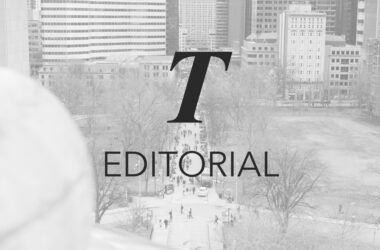
Last month the anonymous group “McGillLeaks” published confidential documents from McGill’s office of Development and Alumni Relations. The administration has been seriously investigating the leak, even bringing in the police to help. Their response has been aggressive and effective, and the “McGillLeaks” website was quickly taken down. The university’s lawyers also sent letters to a number of individuals and media organizations, including the Daily Publication Society (which publishes the Daily and le Délit), asking them to delete any references to the leaked documents as well as to remove links to the now-defunct site.
The administration’s treatment of the DPS sparked a debate over the proper balance between an organization’s right to protect its privacy and the media’s freedom to publish stories dealing with leaked information. The DPS argues that since the Daily was not involved in stealing the confidential information, they aren’t legally prohibited from publishing stories on the documents once they’re made public.
The question of whether media outlets are allowed to use this information, even though it was made public illegally, could have been settled in the courts. Unfortunately, the DPS simply wouldn’t be able to sustain a lengthy legal battle with McGill. The DPS might have a case, but the courts have generally looked at these sorts of “media freedom” issues on a case-by-case basis.
The common sense, and hopefully the legal, standard for these cases is whether stories based on leaked documents contribute valuable information to the public. For example, if a government or organization is engaged in illegal behaviour, then reporting using illegally leaked information can be justified, and both media organizations and whistleblowers should be legally protected. However, publishing stories based on stolen information simply for the sake of transparency, without any greater purpose, is not justified and, preferably, editors would keep such stories out.
The “McGillLeaks” case seems to be the latter. The leaked documents contained mainly personal information about donors. Some may argue that we all have the right to know this information. We don’t. They may also argue that the “McGillLeaks” documents reveal unethical behaviour by the university, and therefore reporting on them is justified. I don’t agree with this, and McGill certainly doesn’t. But, ideally, a court would decide who is right.
However, the Daily decided to comply with some of McGill’s demands by removing links to the “McGillLeaks” site and refraining from publishing material on the content of the documents. This was the right call. The “McGillLeaks” information just isn’t worth it. There wasn’t anything shocking or overly contentious in there. This may be a matter of principle for the DPS, and it would be interesting to see how much freedom media outlets have to publish stories based on illegally obtained information, but they would be foolish to risk so much in this case.
Of course, the worst that should happen to the DPS is that they are forced to remove any stories on “McGillLeaks.” The Daily did not steal the documents, and we’re only talking about whether they have the right to publish stories based on them only once they’ve been made public. Whoever leaked or stole these documents is the real culprit here, and hopefully McGill’s investigation will identify them. The content of the documents did not justify making them public, and whoever is responsible is not a heroic whistleblower, just a thief.









Pingback: McGillLeaks returns with a second major document dump | StudentUnion.ca